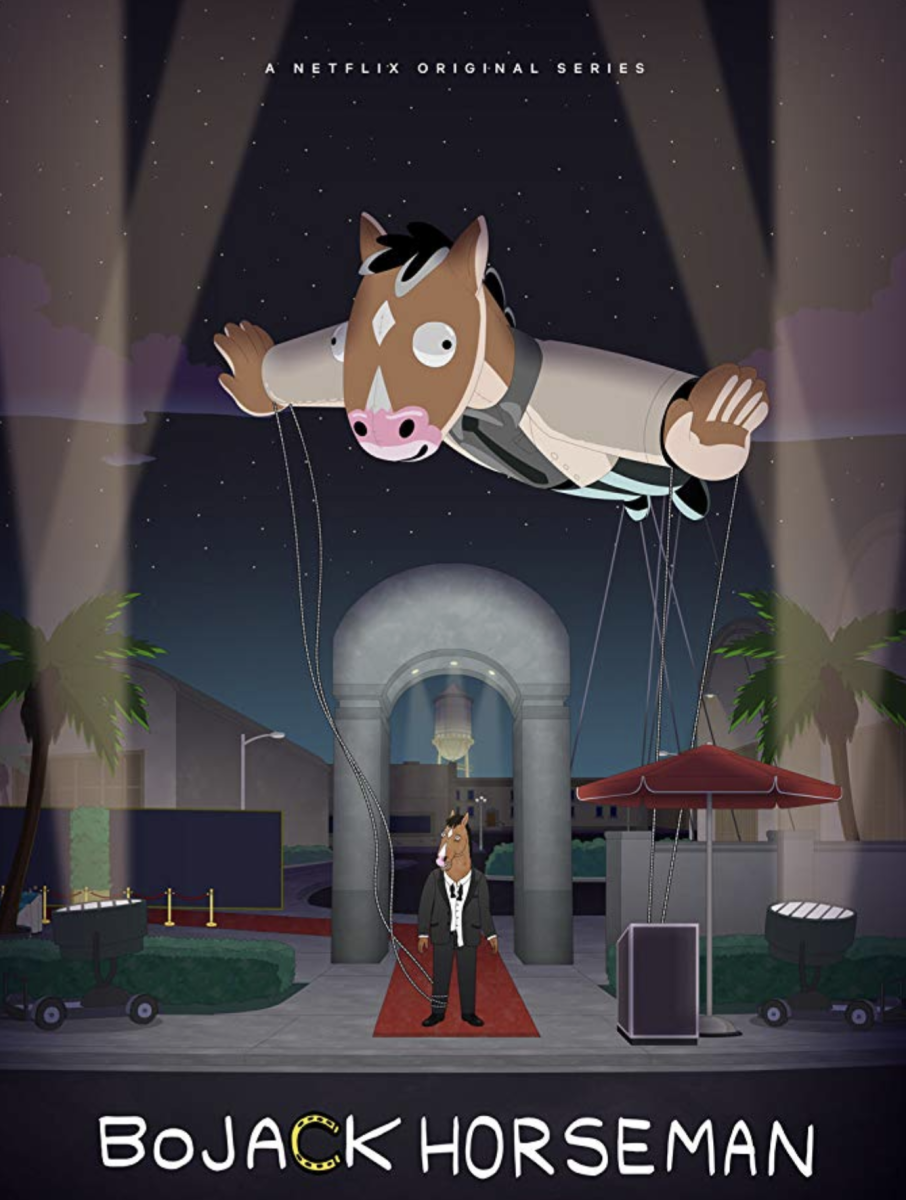Something BoJack Horseman, Netflix’s animated Hollywood satire about a perpetually bummed-out talking horse, has always done exceptionally well is attempt to create discussions about major societal issues before they become mainstream talking points. The show’s second season back in 2015 had a subplot about sexual harassment in Hollywood before the #MeToo movement began, while the following year, it dealt with drug abuse among celebrities that now feels tragically timely. Its relevance and clever social commentary is part of why last season didn’t work quite as well as previous ones; coming less than a year after the 2016 Presidential election, the political satire already felt dated and half-baked.
Fortunately, season five, which came out last Friday, is a major return to form, and brings back the show’s signature brand of pun-based comedy paired with deeply-upsetting drama. In the new season, BoJack (Will Arnett) finds himself cast in the lead of a new prestige detective series, “Philbert.” This show-within-a-show is an excellent parody of modern dramas like “Westworld” and “Legion” that seem to go out of their way to confuse viewers for the sake of confusion, and the show’s creator, Flip McVicker (a _perfectly_ cast Rami Malek) is a hilarious caricature of the tortured artist archetype. He’s part Christopher Nolan, part Noah Hawley, and combines the worst traits of both: “Philbert” features a shameless use of the dead wife trope, overwrought, fake-deep narration, and of course a brooding male protagonist whose personality is strikingly similar to that of our own equestrian antihero, BoJack.
Things aren’t that simple, though. Through the use of a fictional show that involves nearly all of the main characters in some way, “BoJack Horseman” has not only begun to criticize other acclaimed television shows, but also criticize itself as well. In an era where even the most amoral characters such as Breaking Bad’s Walter White can get misread by certain viewers and made out to be heroes, the show asks its audience whether this character, BoJack, deserves every second chance he gets. Do his good intentions outdo all the damage he’s done over five seasons, and just how much more can he get away with before he’s finally gone too far? The show doesn’t have all the answers, and they’re much less clear by the end of the season.
One thing that remains constant is the show’s continued insistence to break free from the typical sitcom episode structure and find new, creative ways to tell its story. The season’s sixth episode, “Free Churro,” consists almost entirely of a lengthy monologue from Bojack, but Will Arnett’s excellent vocal performance and the show’s commitment to character-driven storytelling makes it just as riveting as the more plot-oriented episode. Immediately following that episode, “INT. SUB,” uses a clever framing device of two background characters we’ve only seen once discussing the main plot, with some slightly changed details about them, and it’s hilarious to see how our perception of them changes through different eyes.
The show’s humor is also just as clever as always. Episode 3, “Planned Obsolescence,” features a classic sitcom plot that’s been done hundreds of times (meeting the parents of one’s significant other for the first time), but with a major twist that results in one of the show’s funniest episodes to date. In a season that deals with a lot of heavy topics, it’s a refreshing reminder that the show hasn’t lost its sense of humor, and can be one of the funniest comedies ever when it wants to be.
_Edited by Siena DeBolt | [email protected]_








